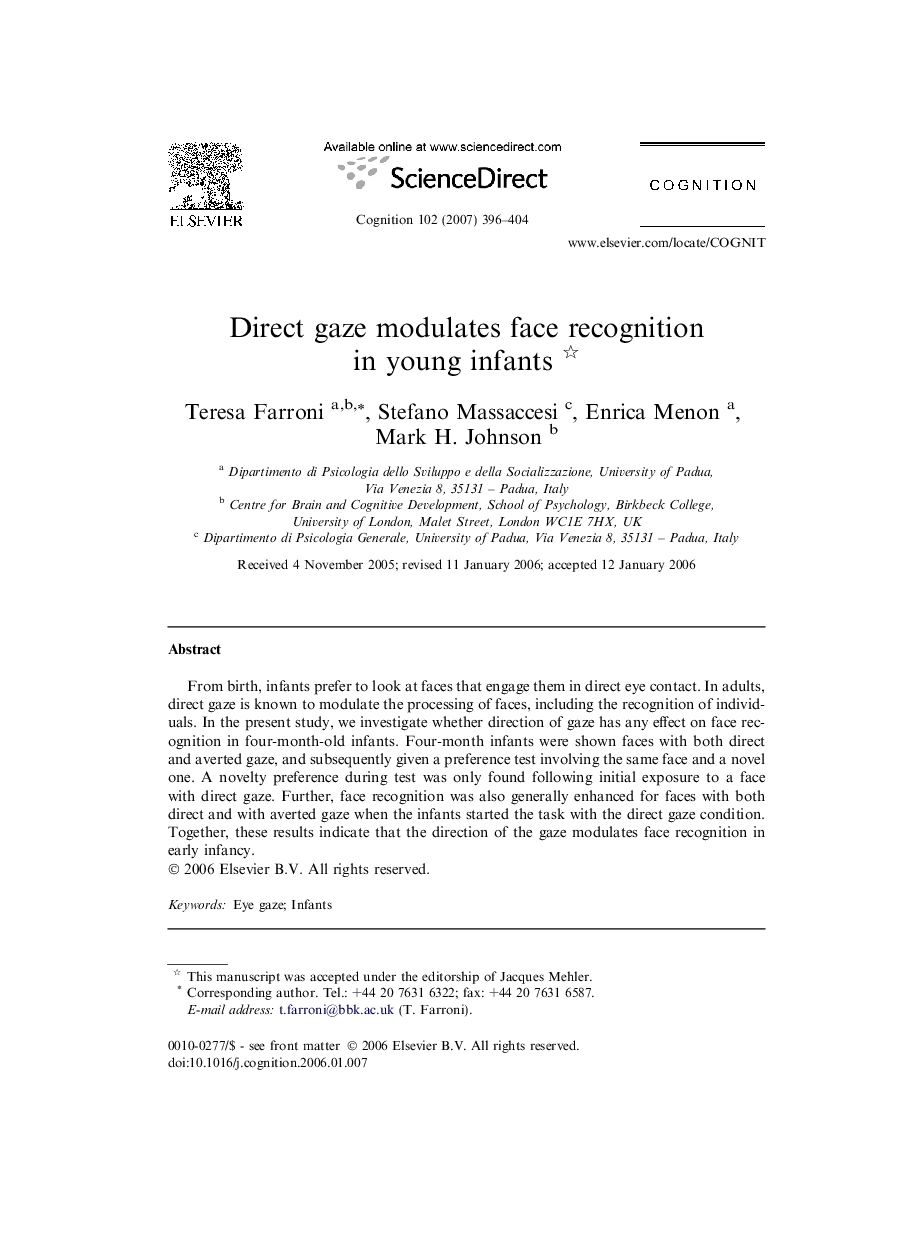| Article ID | Journal | Published Year | Pages | File Type |
|---|---|---|---|---|
| 926809 | Cognition | 2007 | 9 Pages |
From birth, infants prefer to look at faces that engage them in direct eye contact. In adults, direct gaze is known to modulate the processing of faces, including the recognition of individuals. In the present study, we investigate whether direction of gaze has any effect on face recognition in four-month-old infants. Four-month infants were shown faces with both direct and averted gaze, and subsequently given a preference test involving the same face and a novel one. A novelty preference during test was only found following initial exposure to a face with direct gaze. Further, face recognition was also generally enhanced for faces with both direct and with averted gaze when the infants started the task with the direct gaze condition. Together, these results indicate that the direction of the gaze modulates face recognition in early infancy.
